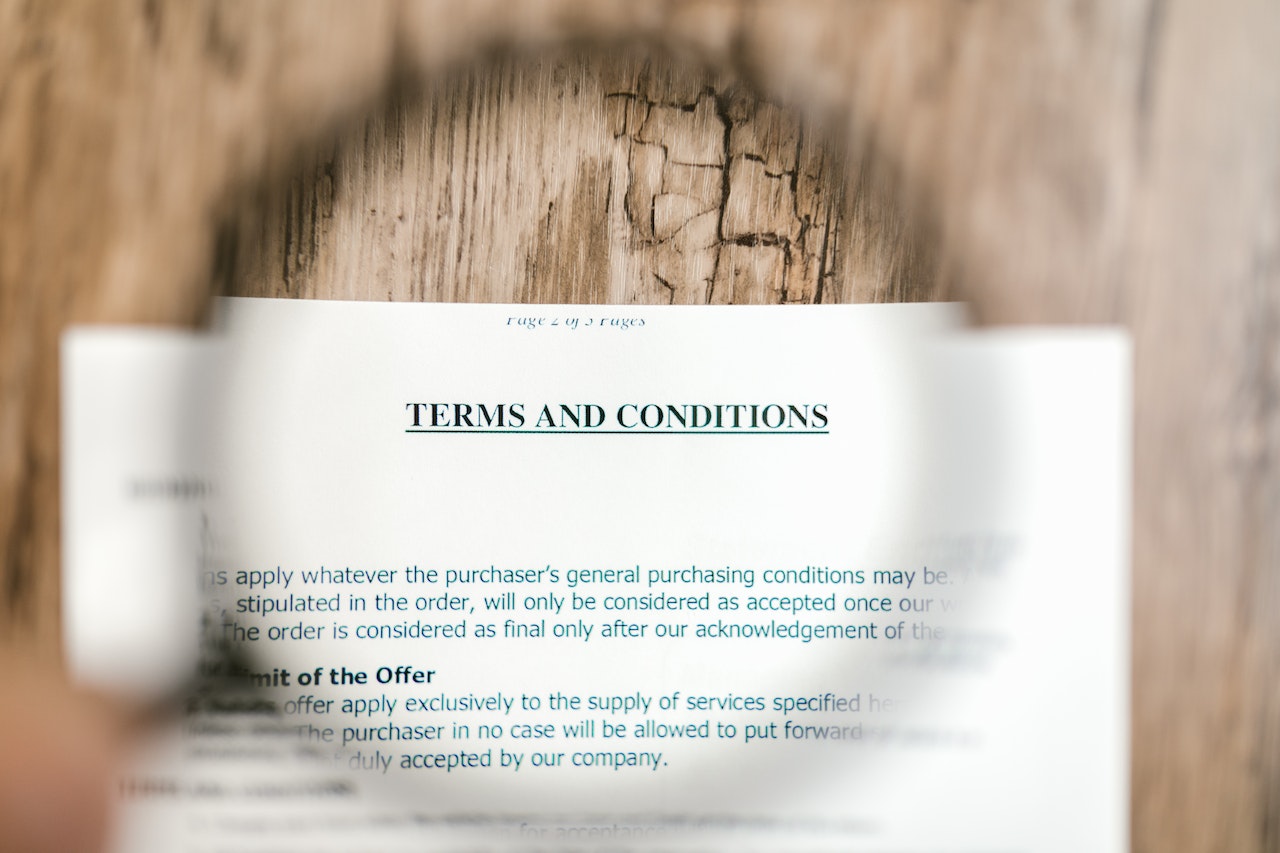Website terms and conditions should be an integral part of any website. They outline the rules and guidelines for users as they interact with a website, as well as providing legal protections for the website owners.
A website’s terms and conditions should be prominently displayed on the website itself, often through a link at the bottom of each page. This ensures visitors are aware of any rules or limitations to the use of a website before they start browsing or using the services or information provided. It also helps the website owners to protect the website’s content and deter any copyright infringement.
The terms of a website can vary depending on the purpose of the website, or the type of services it offers. Generally speaking however, the basic framework of website terms and conditions should include the following points:
Termination/Suspension
Website owners should reserve the right to discontinue or terminate an entire website or a part of it. This helps to limit liability in case of website malfunctions or content that is inaccurate, incomplete or out of date for any length of time. It’s also a way to protect the website from fraudulent activity or illegal use of the website’s content.
Privacy
Website owners should have a clause that outlines how the website will use and store any of the user’s personal data. It should include any third-party organizations with access to this data, like external marketing firms or analytics services. Website owners should also outline how the user can revoke their agreement and delete any personal data from the website.
Content
Website owners should reserve the right to make any necessary edits or changes to the content of the website. This prevents any misuse of the website’s content and should include items such as posting prohibited content, using inappropriate language, censorship, or other claim-specific language.
Liability
Website owners should lay out their terms of responsibility for any damages that might occur from the use of the website. It should mock the extent of any injury or loss arising from the website’s use, and make the user aware of any potential consequences.
Copyright
Become a Sales & Marketing Rainmaker
Learn valuable skills to win more customers, grow your business, and increase your profits.

Copyright is a form of intellectual property that gives the website owner exclusive rights over the content they created. This means no other person or company is allowed to reproduce, republish or re-use this content without the website owners’ consent.
Intellectual Property
This clause is usually used alongside the copyright section and defines which parts of a website are owned by the website owner. This could be the website’s design, software, content or other aspects. It helps to limit any misuse of the website’s material and provides legal protection against any infringement.
Third-party Links
Any website can contain third-party links, which are links to other websites that are deemed useful or relevant to the website’s content. Website owners should outline their acceptance of any responsibility for any loss or injury caused by the content of these linked websites.
Limitation of Liability
Website owners should include a clause that states the website is provided “as is,” and that all implied warranties of merchantability, fitness for purpose and non-infringement are disclaimed. This limits their responsibility for any loss or damage that may occur from using the website.
Governing Laws
This section outlines which jurisdictions the website is governed by, as well as which jurisdiction’s laws will be used to interpret the website’s terms and conditions.
Changes to Website and Terms & Conditions
Website owners should include a clause that allows them to make any changes to the website or the terms and conditions accorded by the website during its use. These changes should be made clear to the user so they are aware of any changes to the website.
Finally, website owners should create a clause that clearly outlines the legality of the website’s terms and conditions and make sure to check each website for compliance with applicable consumer laws. This will ensure the website is legally binding and is not subject to any consumer claims.
